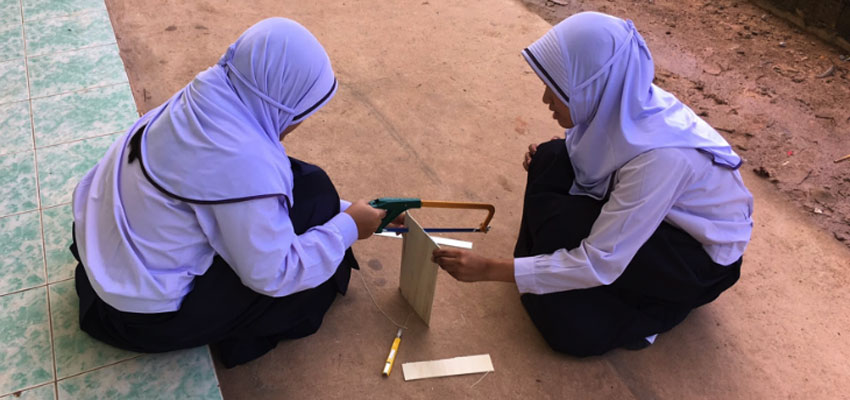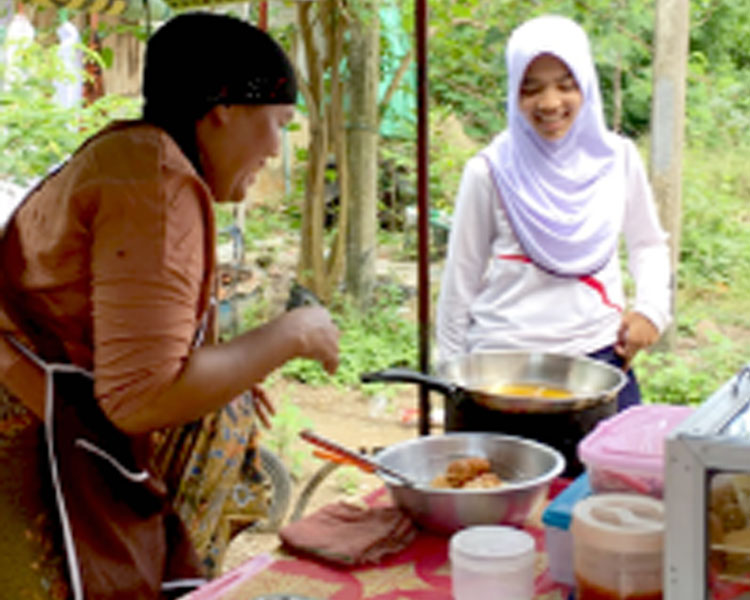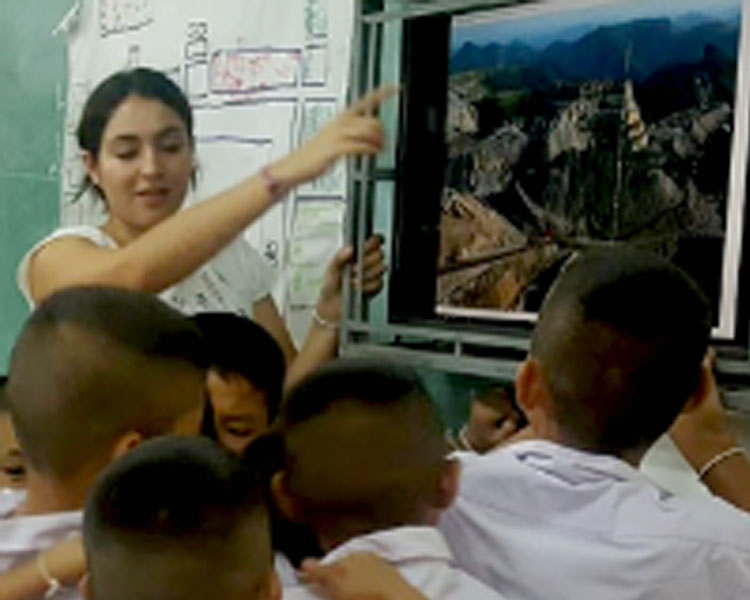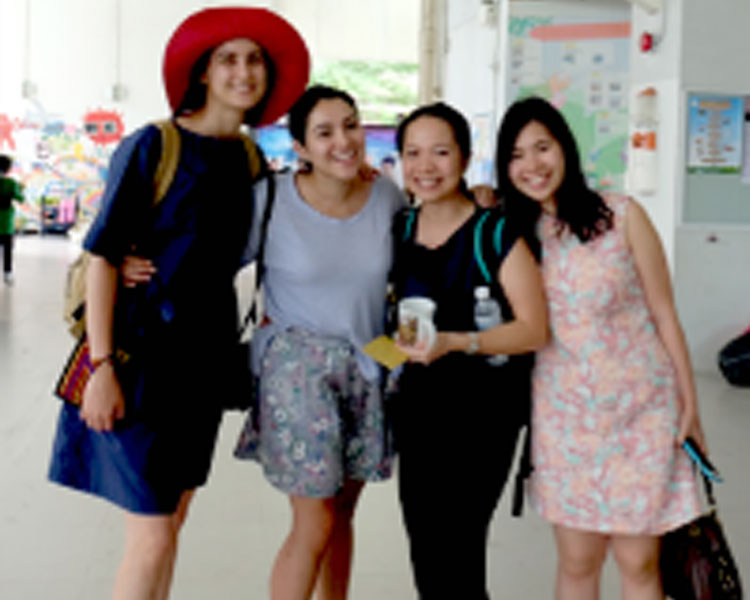
We began D-Lab: Earth during the Spring 2016 semester without a clue of what was about to unfold: a nearly two-month long adventure in Thailand teaching engineering design techniques and sustainability to students of all ages. Cofounded by Estefania Lamas-Hernandez (Wellesley Political Science ’16.5) and Catherine Yunis (MIT Mechanical Engineering ’16), rECOlab was developed at the invitation of Nalin “Tukta” Tutiyaphuengprasert from the Darunsikkhalai School of Innovative Learning’s (DSIL) in Bangkok.
Though the project was initially conceived as a curriculum to pass onto Tukta, after receiving a D-Lab Fieldwork Grant from the MIT Underclasmen Giving Campaign, we spent the semester working towards making the workshop a reality. By the semester’s end, we received additional grants from MIT’s Tau Beta Pi, Wellesley’s Center for Work and Service, and two foundations in Thailand - the World Dignity Foundation and the Suksappatana Foundation. We were inspired by a mutual passion for design, and a belief that its message transforms and empowers people to become more civically engaged through community-based problem solving.
After months of organizing around hectic schedules, a 12-hour time difference, and invaluable meetings with faculty and staff at DSIL, Wellesley, and MIT, we determined that rECOlab would travel to two villages to host workshops, one in Koh Yao Yai, a small island in the southern Andaman Sea, and one in Ban Sam Ka, in the northeastern mountainous forests near Laos.
At its core, the project aimed to get students to participate in design thinking and constructionism workshops meant to increase their environmental awareness and community involvement. Our workshop moved through five stages in an adapted design cycle: identifying a problem, brainstorming solutions, selecting a solution, building a prototype, and testing the prototype. At the end of each workshop, students showed off prototypes they had created as teams based on challenges they identified as negatively affecting their surrounding natural environments.
The presentation for Ban Sam Ka was even attended by Khun Paron, an MIT alumnus who founded DSIL and has dedicated much of his life to promoting constructionism. With his gracious support, we crossed paths with many key stakeholders in Thailand who promote constructionism as a form of human rights activism. These included a retired United Nations - Human Rights Commission ambassador, various DSIL staff, and members of the Thai business community — all who are excited to continue projects like rECOlab in the future.
Ultimately, we hoped that students would actively consider the ways in which they have a place in their community, thereby creating actionable plans to tackle personal and environmental challenges they identified during the workshop. Through daily data collection from students and observations from students and school staff, we gladly report that we succeeded in increasing students’ civic engagement and environmental awareness. Without a doubt, our methodologies were influenced by D-Lab’s Creative Capacity Building approach to development, as well as their commitment to honoring local innovation techniques. In this spirit, we are planning to follow up with Tukta and others at the schools by asking about how the student’s projects have progressed, and continuing discussions about how we can make rECOlab happen again in coming years.
To say “we learned a lot this summer” would be an understatement — but it would also be the truth. Since we were committed to teaching culturally responsive material, we created the curriculum with faculty and staff at the schools. In practice, this meant that, though logistics were discussed in advance during videoconferences, many details were not settled until we were inside the classroom. We often had to improvise, repeat, or rethink parts of our lessons in order to ensure students were internalizing the material. This allowed us to be responsive to day-to-day changes in the classroom, and adapt ourselves to what the students needed or wanted to learn, instead of strictly following what we assumed we should teach them.
Beyond learning about the depth and richness of Thai culture, we came away from this experience beyond grateful for the support we received to make this once-dream a reality. We found new approaches to teach/participate in design, and nurtured our inner teachers (as recent college students, no less!!). We were met from the start with generosity and flexibility — we cannot give enough thanks to the people we worked with for their time, energy, and generosity. They are responsible for the workshop’s smooth first deployment. The persistence they had in making sure we — and rECOlab — were well taken care of made all the difference.
Catherine reflection: Learning to teach in a different country, in a different culture, with only one other person there who was in the same shoes was a totally new experience for me. It was amazing to feel so far from home but still so well supported and loved despite being a stranger. I’m hoping that some of the work we did had a positive impact on the students’ lives.
Estefania reflection: rECOlab gave us an opportunity to multiply the gifts we’ve been given during our undergraduate educations: to think critically, beyond ourselves, and to make a difference in the world. I am grateful to have been a part of this project, and hope that together, we can continue to create solutions grounded in promoting empathy and understanding.




